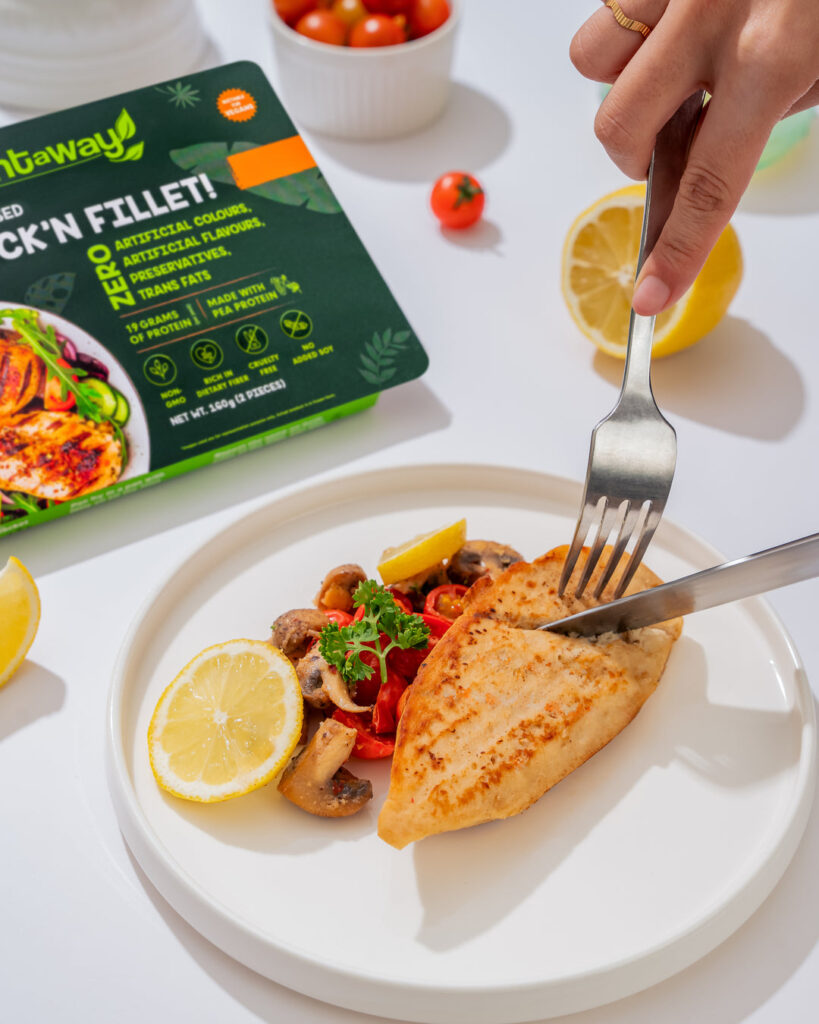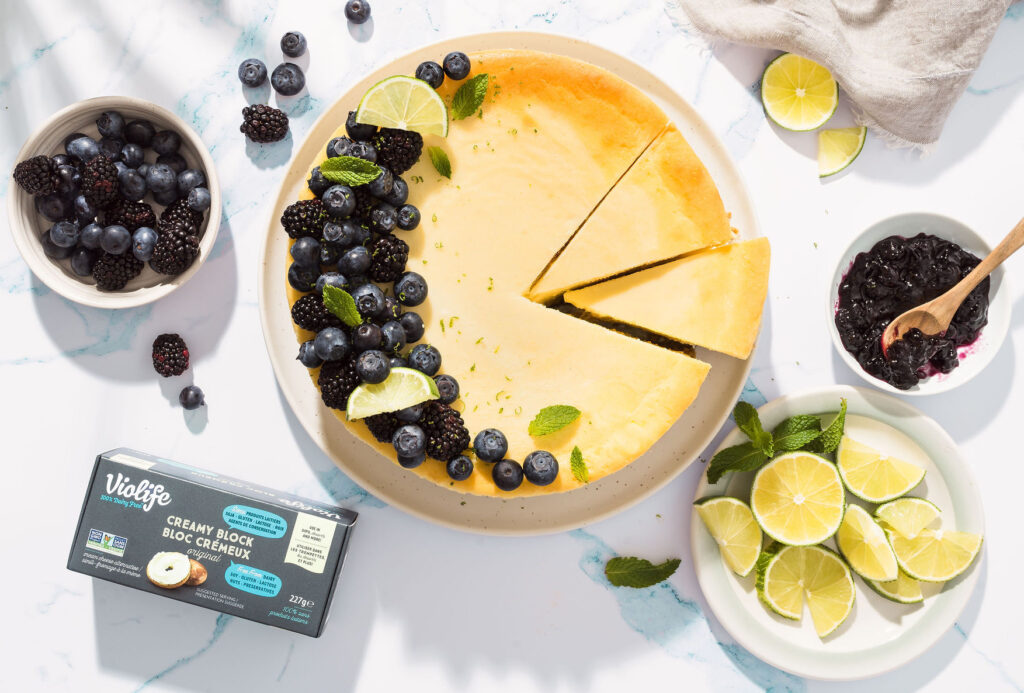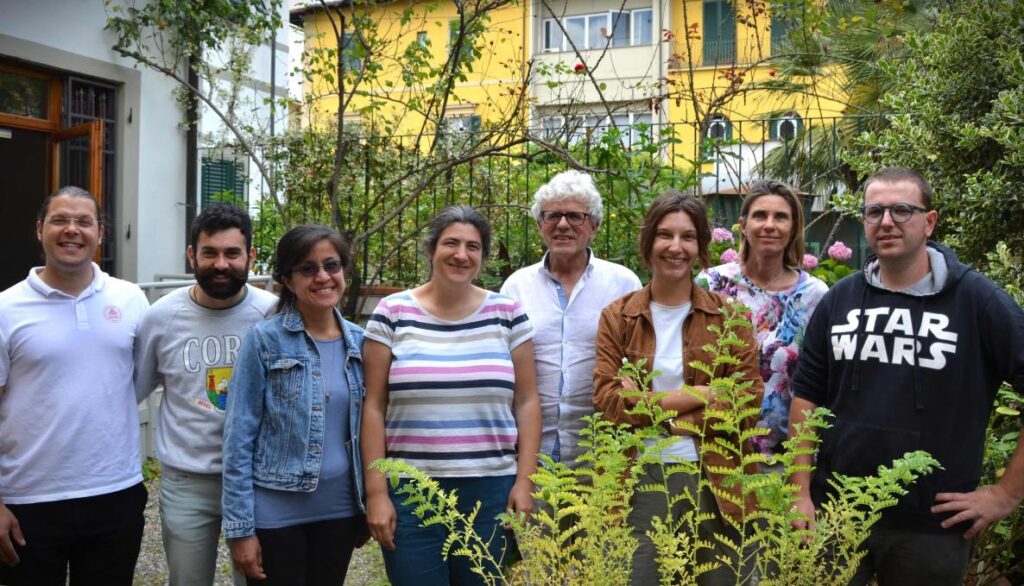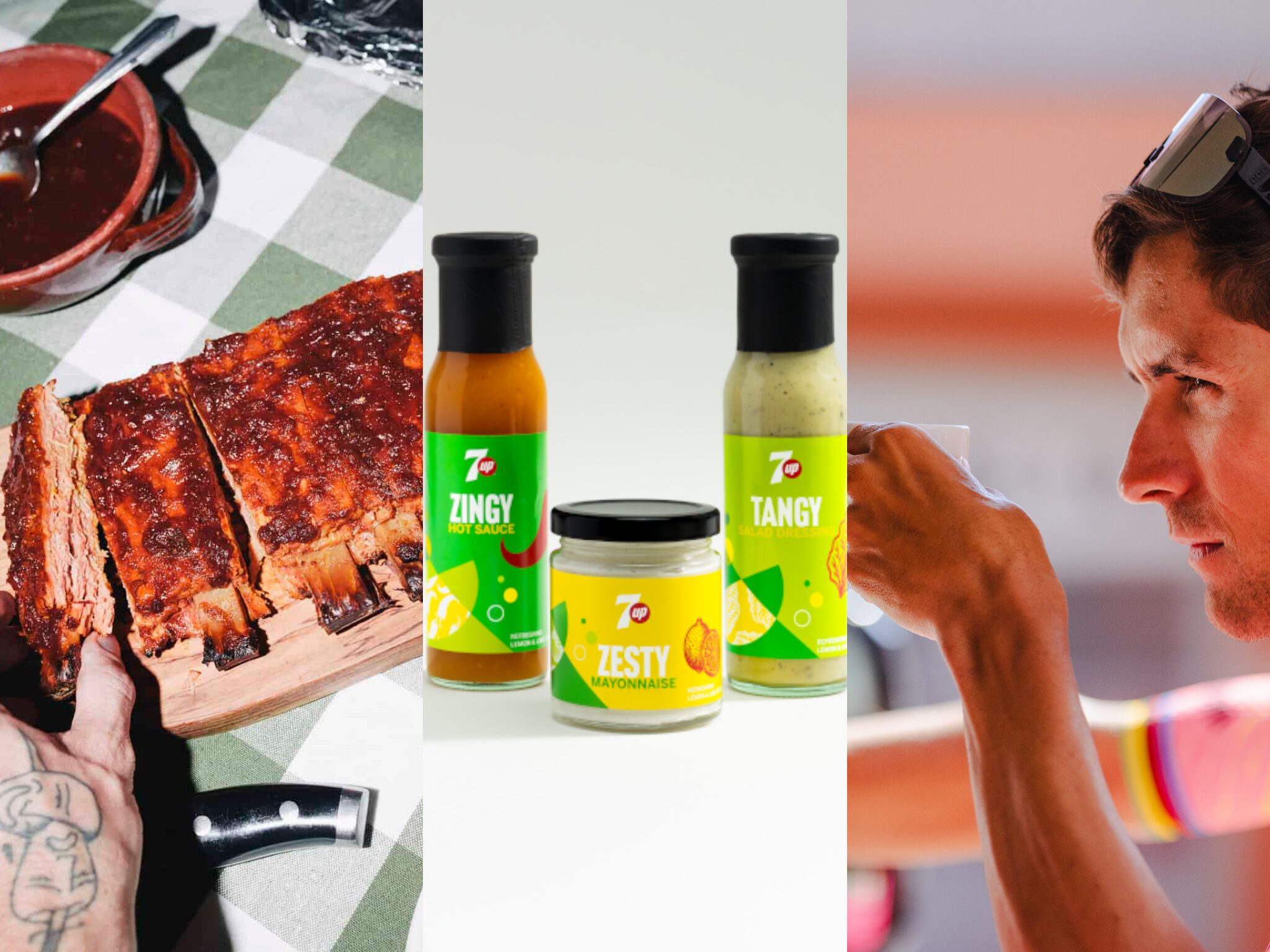Future Food Quick Bites: 7Up Sauces, Plant Milk Factories & Heart Health
6 Mins Read
In our weekly column, we round up the latest news and developments in the alternative protein and sustainable food industry. This week, Future Food Quick Bites covers 7Up’s new vegan sauces, a bunch of plant-based milk facilities, and layoffs at Ginkgo Bioworks.
New products and launches
Soft-drink brand 7Up has introduced a three-strong lineup of vegan BBQ sauces in the UK: a Zesty Mayo, a Zesty Hot Sauce, and a Tangy Salad Dressing. The limited-edition range is only available at several pop-up locations across the country.

UK natural foods company Kallø has added three organic tomato-based dips to its portfolio in lentil, olive and spicy variants, which are available on Ocado for £3 per 135g jar,
Indonesian plant-based meat leader Green Rebel has launched Korean BBQ slices in its home market, as well as Malaysia. The frozen product contains zero trans fat, and is made from a base of soy and wheat protein.
Indian vegan startup Plantaway has unveiled a chicken fillet SKU made with pea protein. It boasts 19g of protein per pack of two, and is available on its e-store and Swiggy and Zomato in select cities for ₹399 ($4.78).

In the US, Crafty Counter has launched its vegan Deviled WunderEggs at Whole Foods locations nationwide. Each pack comes with a ready-to-mix filling sachet made with Fabalish Foods‘ aquafaba mayo.
In Healdsburg, California, chefs Kyle Connaughton and Daniel Humm of three-Michelin-starred restaurants SingleThread and Eleven Madison Park, respectively, will host a 10-course, fully plant-based dinner featuring local produce. Reservations start at an eye-popping $486 per person.
Oatly has inked a multi-year sponsorship deal with US cycling team EF Pro Cycling, which will see the oat milk giant become the Official Performance Partner of the women’s and men’s teams, as well as the title sponsor of the former (which will be known as EF-Oatly-Cannondale). The training camps of the team – which is currently at the Tour de France – will now be called Oatly Performance Camps.

Meanwhile, vegan cheese giant Violife has released what it says is Canada’s first dairy-free cream cheese block. The Creamy Block is available at retailers nationwide, including Save-On-Foods and Longo’s, and will continue to be rolled out at select Loblaws banner stores.
Chilean food tech startup NotCo has introduced a line of vegan protein shakes in Brazil, with flavours including banana pancakes with cinnamon, strawberry with dates, as well as chocolate, coffee caramel, and vanilla with coconut.
And in Europe, Slovenian whole-cut plant-based meat maker Juicy Marbles has secured a foodservice listing with MTNV in Germany for a revamped version of its controversial ribs (which feature edible bones).
Finance and company updates
Two years after announcing the move, Lactalis – the world’s largest dairy company – has reopened a former dairy manufacturing plant in Sudbury, Canada as a plant-based milk factory for its new brand Enjoy.

SunOpta – the food supplier behind plant-based milk dairy brands Dream, Sown and West Life – has invested $26M in a new oat milk facility in Modesto, California. The second-largest expansion in company history, it will allow SunOpta to increase the production of oat milk bases for milk, yoghurts and ice creams by 60%.
In more manufacturing news, New Zealand oat milk maker Otis has opened a purpose-built facility in East Auckland, allowing the company to finally move production locally after five years of operations in Sweden.
Following a 37 million kroner ($5.3M) grant – which includes state funding – Danish food company Palsgaard is seeking partners to participate in its Plant-based Ingredients for Egg Replacers (PIER) project to develop vegan alternatives to fresh and dried egg ingredients, in partnership with Aarhus University and R&D firm Nexus.

The UC Berkeley Sutardja Center for Entrepreneurship & Technology (SCET) has received a two-year grant worth $800,000 from Open Philanthropy, which will support programmes under its Alternative Meats Lab, where student researchers will explore sustainable food solutions.
NASDAQ-listed synthetic biology firm Ginkgo Bioworks – the parent company of Motif Foodworks – has initiated a round of layoffs, with 35% of its workforce expected to be let go by June 2025. The move is expected to cost the company $12M, and it further plans to consolidate its facilities.
Speaking of public listings, Canada’s Above Food is now trading on the NASDAQ following a merger with Bite Acquisition Corp, days after it acquired Spanish plant-based meat brand Brotalia (trading as Foody’s).

In Italy, the Sant’Anna School and its Institute of Plant Sciences will contribute to an ongoing two-year-long project funded by the Ministry of University and Research-European Union to boost the production of plant proteins like beans, peas, chickpeas, lentils, etc.
In Singapore, Cellivate Technologies – a startup making cell-based solutions for cultivated meat, leather and cosmetics – nabbed the biggest investment on Channel News Asia‘s reality show The Big Spark, with S$4.15M ($3.05M) in potential funding from five VCs.
Policy and research developments
A judge in Oklahoma has ruled that the Plant Based Foods Association has no standing to challenge a vegan meat labelling law, stating that the organisation failed to show that its members – including Tofurky – face a credible prosecution threat, because the Meat Consumer Protection Act only applies to those who sell meat.
Meanwhile, following a change in consumption taxes this April, plant-based milk sales declined by 7% in the Netherlands. The new law increased the VAT on milk alternatives, but not conventional milk, which meant the former has become 12 cents more expensive, while the latter is now four cents cheaper.

Also in the Netherlands, two more supermarkets – SPAR and Picnic – have joined animal rights organisation Wakker Dier‘s pledge to have half of all proteins sold be plant-based by 2025, with the share increasing to 60% by the end of the decade.
A YouGov survey on behalf of the Good Food Institute Europe has revealed that 68% of Italians believe plant-based companies should be able to use meat-related terms on product packaging. It follows Italy’s announcement that it was reconsidering its labelling ban, which was imposed alongside its cultivated meat ban in November.
Finally, after all the brouhaha about plant-based meat, UPFs and heart health recently, a new review has found that when directly compared to animal-based meat, vegan analogues consistently lower cardiovascular disease risks.
Check out last week’s Future Food Quick Bites.



